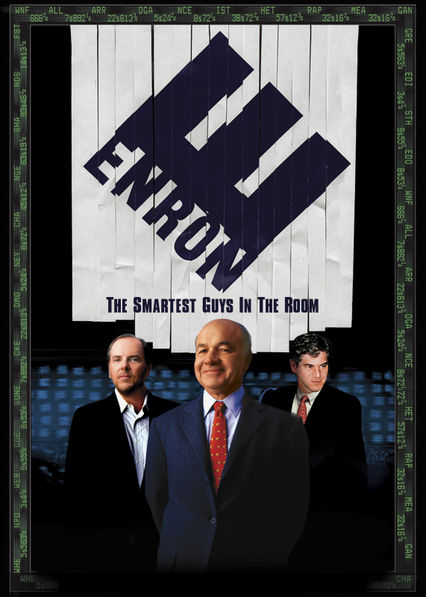



It worked, at least for a while, and along the way the Skilling-Lay regime built a corporate culture of true believers that some insiders compared to Jonestown. Enron's dynamic duo - especially Skilling, the company's self-appointed Big Thinker - convinced themselves that some high-powered rhetoric and MBA-thesis ideas would carry them to immense profitability. Neither Lay nor Skilling cooperated with Gibney's film (to nobody's surprise) but the portrait he paints of them is strikingly convincing. What emerges is a tale as fatalistic as anything in Sophocles: The now-notorious Kenneth Lay and Jeffrey Skilling built a midsize gas-pipeline company called Enron into the poster child for a new economy of free markets and deregulation, but the sins they committed along the way guaranteed a stupendous collapse. (Peter Elkind is an old journalistic acquaintance of mine, but I haven't spoken to him in several years.) Gibney convinced several former Enron employees to talk on camera, unearthed a fascinating (and often chilling) trove of internal Enron audio and video recordings, and relies simply on McLean and Elkind's ability to tell the story when nothing else will do. As McLean says in the movie, the story of America's biggest corporate collapse is not about numbers - as massively fraudulent as Enron's earnings turned out to be - it's a human drama and a human tragedy. I don't want to complain overmuch about Gibney's "Enron" film, which is based on the outstanding book "The Smartest Guys in the Room" by Fortune reporters Bethany McLean and Peter Elkind. Someone more dispassionate than I might argue that there are further similarities between talk radio and lefty agitprop movies (I hesitate to call them documentaries): Both could be seen as making valid points about the nature of power in America - the oligarchic power of the elite establishment or the quasi-fascistic power of big capital, as the case may be - that become dangerously clouded by ideological zeal and the quest for entertainment value. Like Rush Limbaugh and Sean Hannity, these kinds of movies - which mostly play in art-house theaters in major cities and college towns - reach an audience almost exclusively composed of like-minded people. But the legacy of Michael Moore's unlikely box-office smash is likely to be a long one muckraking nonfiction films like Jennifer Abbott and Mark Achbar's "The Corporation" or Alex Gibney's new "Enron: The Smartest Guys in the Room" are becoming the left wing's answer to talk radio. If you thought the cascade of post-"Fahrenheit 9/11" agitprop films had slowed to a trickle after last fall's election, you're probably right.


 0 kommentar(er)
0 kommentar(er)
